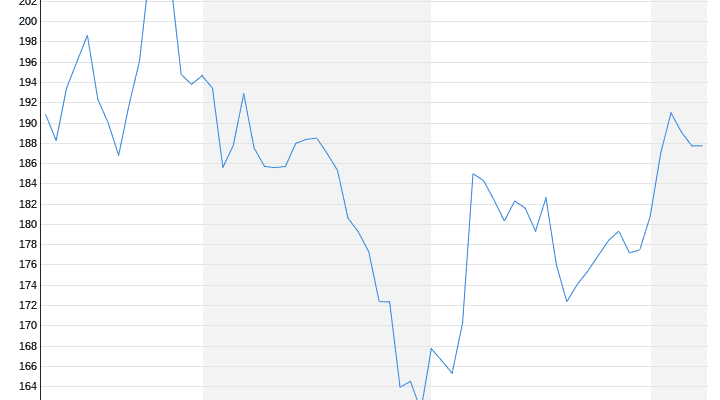Tuesday, January 11, 2022
Sales collapse significantly
VW laments “quite a difficult year” in China
It can only get better: The Volkswagen Group lost several percent of its market share last year. VW and Skoda cars are less in demand in the Far East. There are also problems with semiconductors and supply chains. This year the German carmaker wants to catch up “disproportionately”.
The Volkswagen Group’s sales in the world’s largest car market, China, slumped by 14 percent last year. A total of 3.3 million vehicles were sold in the “Greater China” region in 2021. VW China boss Stephan Wöllenstein cited the lack of semiconductors and problems in the supply chains as reasons for journalists in Beijing. “It’s been a pretty difficult year.”
This year, Volkswagen wants to at least make up for the losses – and also take off with its electric cars from the ID family. The decline in 2021 mainly affected the volume brands Volkswagen and Skoda, reported Wöllenstein. The premium brand Audi did less badly with a minus of 3.6 percent compared to the previous year. Porsche was able to sell 8 percent and Bentley even 43 percent more cars. The overall market had grown by four percent. The VW Group’s market share in China, which had long been 14 or 15 percent, fell to 11 percent.
“600,000 cars were lost in production,” said Wöllenstein, referring to bottlenecks that would have hindered sales. He mentioned the semiconductor shortage, corona outbreaks and subsequent production stops, as well as a fire at a Japanese supplier. “It’s a complex system of restrictions that really changes weekly,” said Wöllenstein. This year the group wants to catch up vigorously, as Wöllenstein said. “The demand is still there.” While the overall market is expected to grow by four percent, Volkswagen wants to grow by 15 or 16 percent. “We want to regain disproportionately what we have lost above average in the past year,” said the VW China boss.
Sales of electric cars from Volkswagen’s ID family are also expected to develop positively. After missing the target of 80,000 to 100,000 for 2021 and actually selling “a little more than 70,000”, Wöllenstein wants to “at least” double sales this year. The German automaker’s chief financial officer called the availability of chips this year the limiting factor on Monday: “The ability to grow in 2022 will depend on the ability to get more chips,” said Arno Antlitz of the Wall Street Journal. He considers the current high inflation to be temporary. “Overall, we expect a pretty good year for VW,” he said of the overall situation.
“It is us, the industry that cannot deliver”
Wöllenstein was certain that Volkswagen would sell any ID car that could be built. The supply of semiconductors for 160,000 to 200,000 ID cars is assured. With the transformation to alternative drives, half of the new models that will be launched in China this year will be electric cars. Here in particular, domestic Chinese manufacturers are strong, which, from Wöllenstein’s point of view, will hardly change. However, by the end of the decade, Volkswagen also wants to be number one in e-mobility in China.
In his opinion, the prospects for VW’s largest single market are “very positive”. With the growing middle class in China, annual car sales of 28 to 30 million are expected by the end of the decade. “There is great purchasing power in society,” said Wöllenstein. “It is us, the industry, that cannot deliver.” Last year, 21 million cars were sold in China.
There are still factors of uncertainty. “The semiconductor risks are difficult to assess.” Wöllenstein was also concerned about the first omicron outbreak in China in Beijing’s neighboring city of Tianjin and possible further lockdowns. The Volkswagen plant in Tianjin has already had to temporarily stop production. Often curfews or production stops come overnight so that supply chains have to be adjusted. But they also passed quickly. “It could be a number of minor problems, though.”
Because of the strict entry restrictions and the forced quarantine of three weeks in China, it is also difficult to bring foreign specialists into the country. “A minimum of international experts is still necessary and wanted,” said Wöllenstein. But it is difficult to motivate skilled workers to go to China – especially if they also have children. “The industry suffers.”
